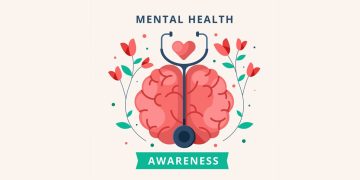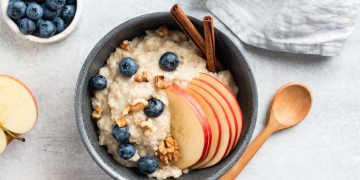Disease-Fighting Nutrition: How to Prevent Illness with a Healthy Diet
As the old adage goes, “you are what you eat.” This rings true when it comes to maintaining optimal health and preventing illness. The food we consume plays a significant role in our overall well-being, affecting everything from our energy levels to our immune system. By incorporating disease-fighting nutrition into our daily diet, we can boost our body’s defenses and reduce the risk of falling ill. In this article, we will explore the importance of a healthy diet in preventing illness, how certain nutrients can help bolster our immune system, and provide practical tips on how to incorporate these foods into our meals.
The Link Between Nutrition and Disease Prevention
It’s no secret that a well-balanced diet is key to maintaining good health. However, the connection between nutrition and disease prevention is often overlooked. The foods we eat can either fuel the development of chronic illnesses or protect us from them. A diet high in processed foods, sugary beverages, and unhealthy fats can weaken our immune system and make us more susceptible to infections and diseases.
In contrast, a diet rich in fruits, vegetables, whole grains, lean proteins, and healthy fats can provide our bodies with the nutrients they need to function optimally. These foods are packed with vitamins, minerals, antioxidants, and phytochemicals that help strengthen our immune system and fight off harmful pathogens. By making better food choices, we can give our bodies the tools they need to ward off illness and stay healthy.
Key Nutrients for Immune Health
When it comes to disease-fighting nutrition, there are several key nutrients that play a crucial role in supporting our immune system.
Vitamin C
Vitamin C is one of the most well-known immune-boosting nutrients. It is a powerful antioxidant that helps protect our cells from damage and supports the production of white blood cells, which are key players in our immune response. Citrus fruits, strawberries, bell peppers, and broccoli are all excellent sources of vitamin C.
Vitamin D
Vitamin D is another essential nutrient for immune health. It helps regulate the immune response and reduce inflammation in the body. Sunlight is the best natural source of vitamin D, but you can also find it in fatty fish, fortified dairy products, and egg yolks.
Zinc
Zinc is a mineral that plays a vital role in immune function. It helps our immune cells communicate with each other and fight off infections. Foods high in zinc include beef, poultry, beans, nuts, and seeds.
Probiotics
Probiotics are beneficial bacteria that help maintain a healthy gut microbiome. A strong gut microbiome is essential for a robust immune system, as it helps regulate inflammation and protect against harmful pathogens. Yogurt, kefir, sauerkraut, and kimchi are all good sources of probiotics.
Practical Tips for Preventing Illness with Nutrition
Now that we understand the importance of disease-fighting nutrition, let’s explore some practical tips on how to incorporate healthy foods into our diet to prevent illness.
1. Eat a Variety of Fruits and Vegetables
Fruits and vegetables are packed with vitamins, minerals, and antioxidants that help support our immune system. Aim to include a variety of colors in your meals to ensure you are getting a wide range of nutrients. Fresh, frozen, or canned – all forms of fruits and vegetables are beneficial for your health.
2. Choose Whole Grains
Opt for whole grains such as brown rice, quinoa, oats, and whole wheat bread over refined grains. Whole grains are rich in fiber, which helps support a healthy gut microbiome and reduce inflammation in the body.
3. Include Lean Proteins
Protein is essential for building and repairing tissues in the body, including our immune cells. Choose lean sources of protein such as poultry, fish, beans, and legumes to reduce saturated fat intake and support overall health.
4. Limit Processed Foods and Added Sugars
Processed foods and added sugars can weaken our immune system and increase inflammation in the body. Try to minimize your intake of these foods and opt for whole, unprocessed options whenever possible.
5. Stay Hydrated
Water is essential for every function in our body, including our immune system. Stay hydrated by drinking plenty of water throughout the day and limit sugary beverages that can dehydrate you.
6. Practice Mindful Eating
Take time to enjoy your meals and pay attention to your body’s hunger and fullness cues. Eating mindfully can help prevent overeating and promote better digestion and nutrient absorption.
Common Questions About Disease-Fighting Nutrition
1. Can supplements replace a healthy diet?
While supplements can be beneficial for filling in nutrient gaps, they should not be used as a substitute for a healthy diet. Whole foods provide a wide range of nutrients that work together to support our overall health, whereas supplements only offer isolated nutrients. It’s best to focus on eating a balanced diet rich in fruits, vegetables, whole grains, lean proteins, and healthy fats to support your immune system.
2. How can I boost my immune system naturally?
In addition to eating a nutrient-dense diet, there are several lifestyle factors that can help boost your immune system naturally. Getting enough sleep, staying physically active, managing stress, and avoiding smoking and excessive alcohol consumption are all essential for maintaining a strong immune system.
3. Are there any foods that can harm my immune system?
While certain foods can help support your immune system, there are also foods that can harm it. Processed foods, sugary beverages, hydrogenated oils, and excessive alcohol consumption can all weaken your immune system and increase inflammation in the body. It’s best to limit these foods and focus on whole, nutrient-dense options to support your immune health.
Conclusion
In conclusion, disease-fighting nutrition plays a crucial role in preventing illness and maintaining optimal health. By incorporating a variety of nutrient-dense foods into our diet, we can support our immune system and reduce the risk of falling ill. Fruits, vegetables, whole grains, lean proteins, and healthy fats are all key components of a healthy diet that can help bolster our body’s defenses. By making small changes to our eating habits and emphasizing whole, unprocessed foods, we can give our bodies the tools they need to stay healthy and ward off disease.












































